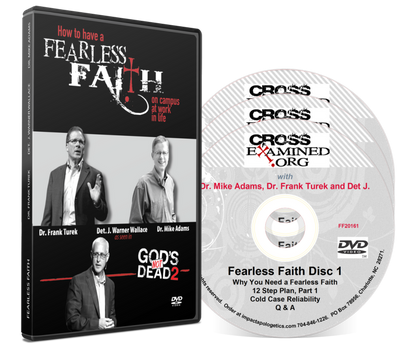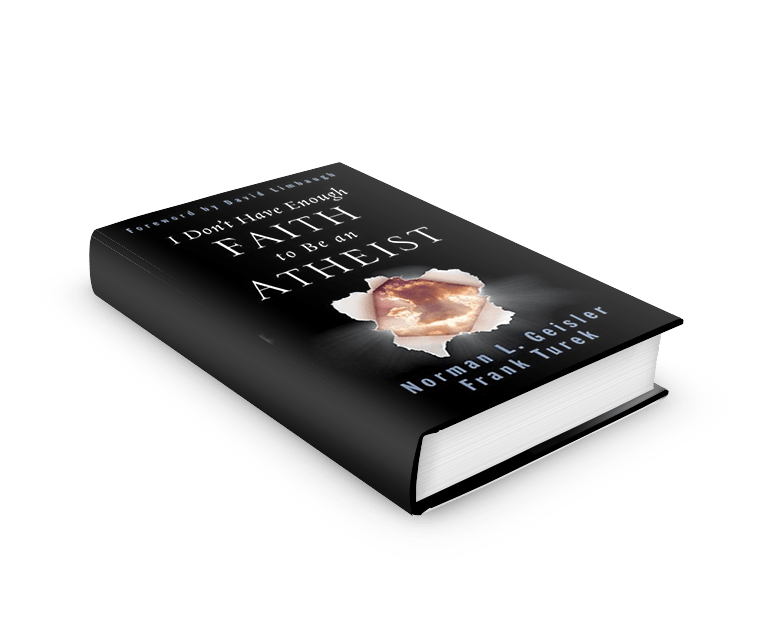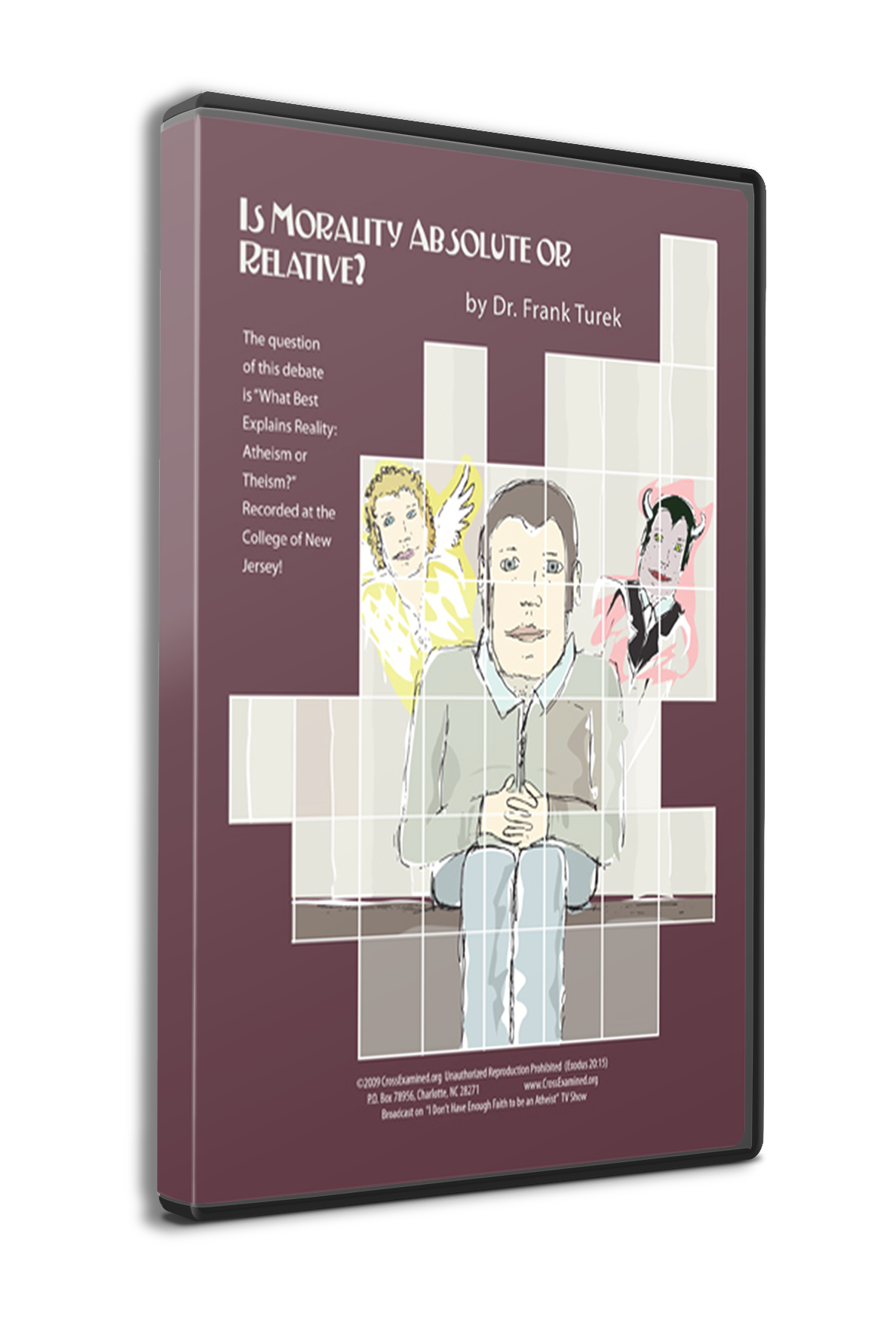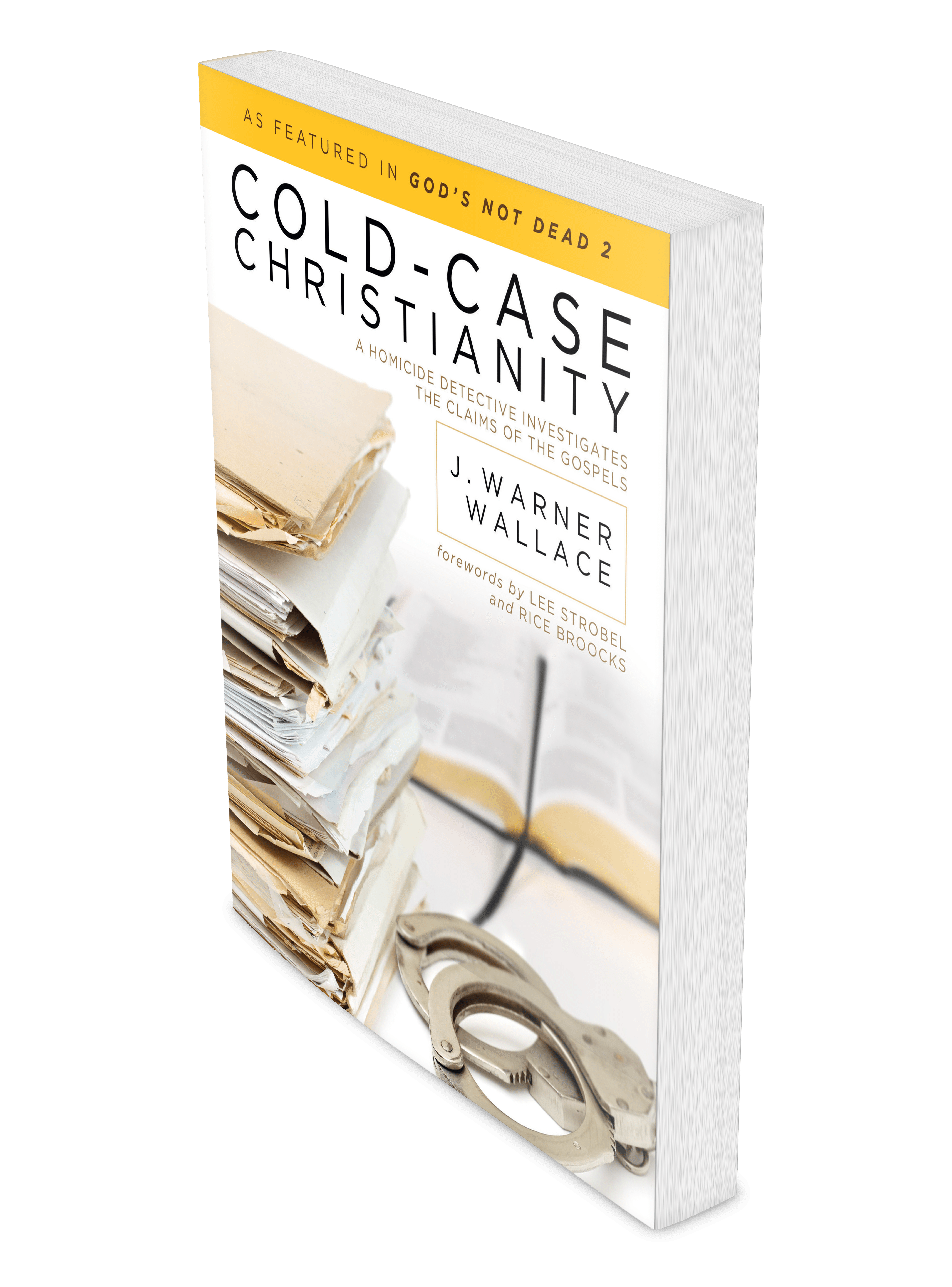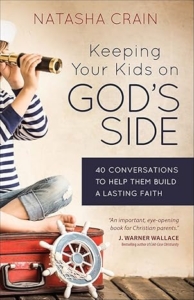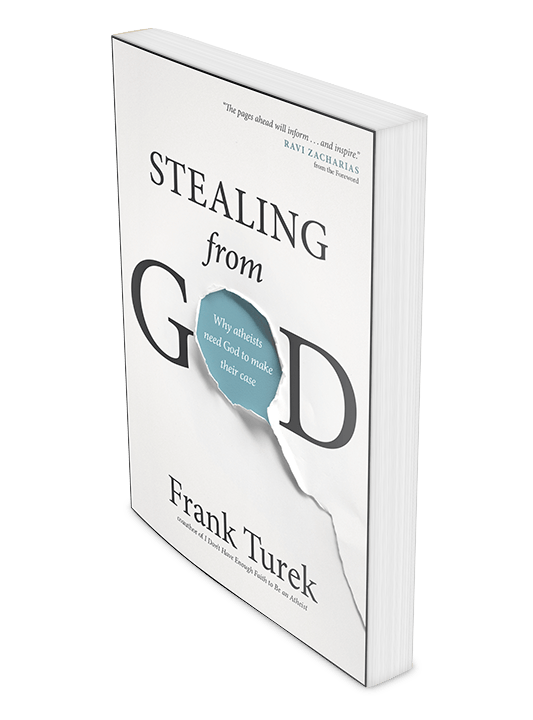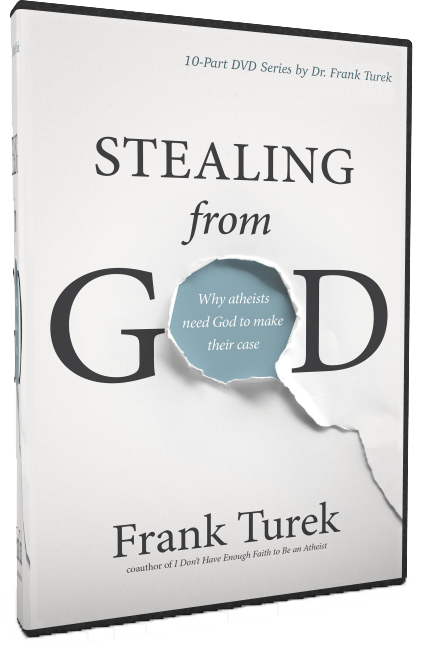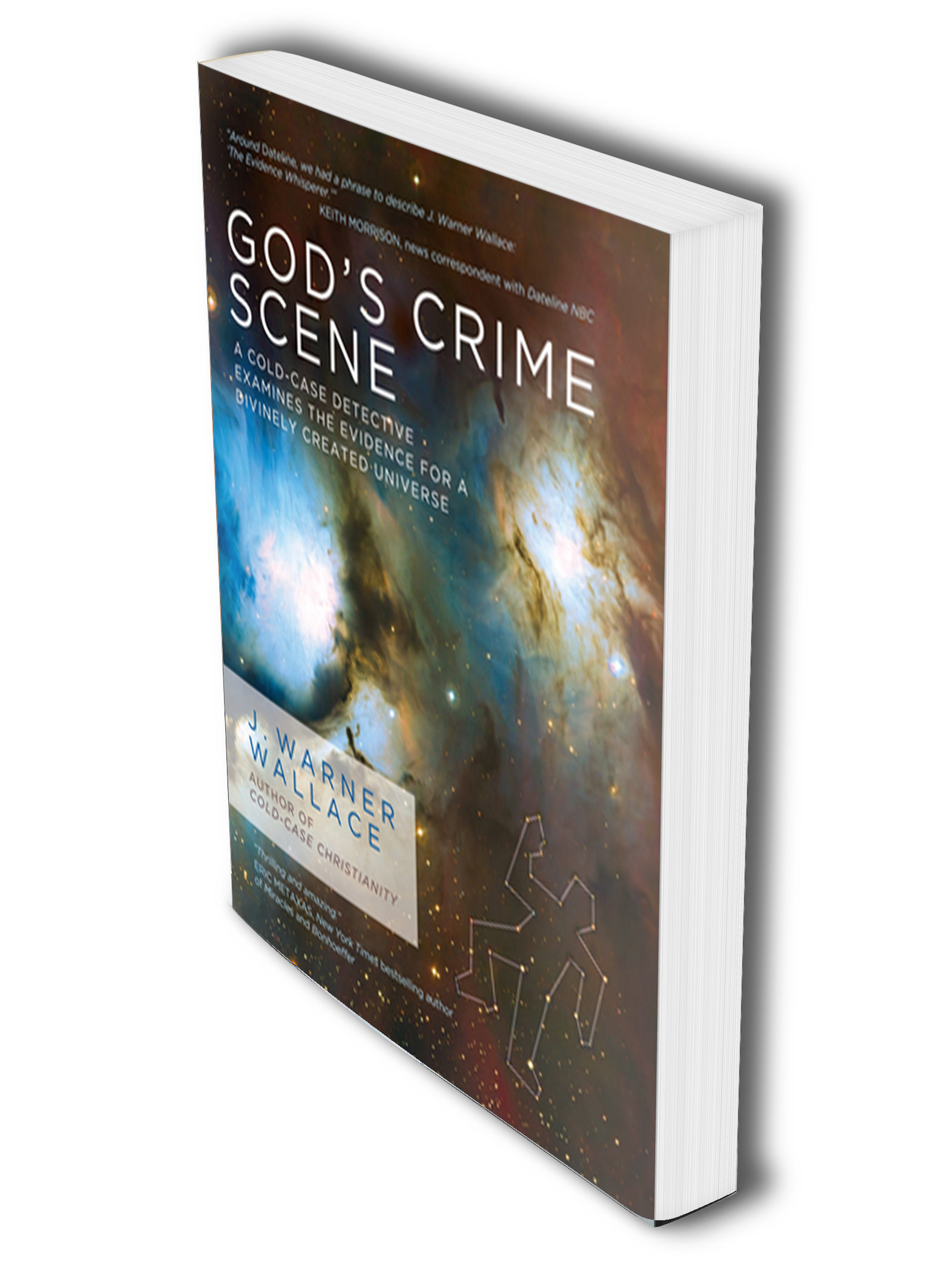By Mark McGee
I was comfortable as an atheist. I could do anything I wanted to do (or could get away with) and laugh at the masses of people stuck in the merry-go-round of belief in a “higher power.” I laughed at them privately, with friends, and publicly on my radio talk show. So, it came as quite a surprise when I heard that science might support creation of the heavens and the earth by “God.” That was stuff of my childhood, certainly nothing to concern myself as an informed adult, but there it was staring me in the face – creation science.
In the early 1970s people like Dr. John Meyer of the University of Louisville (Physiology and Biophysics), Dr. Malcolm Cutchins of Auburn University (Aerospace Engineering), Dr. Kenneth Cummings with the U.S. Consultants Fisheries Service in LaCrosse, Wisconsin (Research Biologist), Dr. Thomas Barnes of the University of Texas, El Paso (Physics), Dr. David Boylan of Iowa State University (Dean, College of Engineering), Dr. Arthur Wilder-Smith of the University of Illinois Medical School Center, University of Geneva School of Medicine, and University of Bergen School of Medicine (Doctorates in Physical Organic Chemistry and Pharmacological Sciences), and Dr. Edward Blick of the University of Oklahoma (Aerospace, Mechanical and Nuclear Engineering) were supporting creationism using science as evidence. I found that very interesting since my observation of Christians at the time was they were not educated nor informed in the “sciences.”
The man who introduced me to the fact that many scientists believed in creation had been a professor of Civil Engineering at Rice University in the 1940s and had received his Ph.D. in Hydraulic Engineering at the University of Minnesota. Dr. Henry Morris taught at several universities during the 1950s and 60s and helped start the Creation Research Society in the early 60s. He co-wrote The Genesis Flood with Dr. John Whitcomb, which included his belief in the literal interpretation of the world-wide cataclysmic flood that killed all life on earth except for those who rode out the flood in the Ark built by Noah and his sons. Thus, the reason for Dr. Morris’ visit to Florida as he prepared to search for the Ark on Mt. Ararat. All of this seemed ridiculous to me, so I invited Dr. Morris to appear on my radio show in a special two-hour edition where we would dig into the claims of a creator God who destroyed most life on the planet with water.
One of Dr. Morris’ evidences about creationism was the “fine-tuning” of the universe. By that he meant the earth was the only physical place in the universe capable of sustaining higher forms of life. Dr. Morris pointed to the earth’s unique hydrosphere, atmosphere, and lithosphere as some of the evidence for that, along with the position of the earth in its distance from the sun and how the earth’s moon and other planets and moons in our solar system orbited the sun in a way that benefited life on earth and served as a protective shield to most of the damaging elements hurtling through space.
Fine-Tuning of the Universe
One of the evidences presented by scientists who believe in creation is known as “fine-tuning.” Dr. Lawrence Henderson of Harvard College and Harvard Medical School wrote about the concept of fine-tuning a century ago in his book The Fitness of the Environment (1913). Other scientists who made scientific discoveries used in the development of the theory of fine-tuning (prior to 1971) included Dr. Hermann Weyl of ETH Zurich (where he was a colleague of Albert Einstein) and Princeton University (Mathematical Physics), Sir Arthur Eddington of the University of Cambridge (Astrophysics), Nobel Prize winner (Physics) Dr. Paul Dirac of the University of Cambridge, University of Miami, and Florida State University, Dr. Carl Brans of Princeton University and Loyola University (Mathematical Physics), and Dr. Robert Dicke of Princeton University (Physics, Astrophysics, Atomic Physics).
The idea of fine-tuning, as was explained to me, is that of the universe being fine-tuned for “life”. Could the universe be so highly tuned for life that the earth was the only place in the universe that could support it? What had we learned from our exploration of the universe through powerful telescopes straining to see as far as many miles and light years as possible? Did we see other planets supporting life? NASA had launched many rockets into space by 1971 looking for signs of life. Did we have “proof of life” in another part of our galaxy or the universe? Not to say that space exploration wouldn’t find life out there somewhere, someday, but it seemed at the time as if we were alone in the universe.
Some of the “large number coincidences” (also known as large numbers hypothesis) were extraordinary in the study of the universe. I traced it back to the early part of the 20th century to something Dr. Hermann Weyl wrote – “the ratio of the electron radius to the electron’s gravitational radius is of the order of 1040. The ratio of the electron radius to the world radius may be of similar proportions” (H. Weyl. 1919. Ann. der Physik S9129). Eddington, Dirac, and Dicke built on Weyl’s idea of coincidences between extremely large numbers from different origins. Were those coincidences because of the slow change of evolution or something more purposeful?
As an atheist who gladly accepted evolution as the “truth,” I did not believe there was any purpose to life. Why would there be any purpose to billions of years of evolution with its slow process of “natural” selection? There wasn’t. I had no purpose. People I knew had no purpose. The world I lived in had no purpose. I was the product of a more highly evolved life form and could use lower life forms to my advantage. I could also take advantage of similar life forms, but at a certain risk of other life forms taking advantage of me. It was a bit tricky, but I was figuring it out as I went along.
But what if there was a life form that was much higher than humans? What if that higher life form existed in another dimension than the one we experienced? What if that higher life form made demands on humans even as humans made demands on lower life forms? What if that higher life form had created lower life forms for a purpose? If so, what was the purpose? Was it to take advantage of us in the same way we took advantage of other life forms? Or something else?
I had never looked at life in that way before. Things were so simple in my world. Eat, grow, dominate, reproduce, lose strength and ability to dominate, die. Things only became difficult if something or someone tried to keep me from eating, growing, dominating, and reproducing. Get in my way and I’ll shut you down. That was my basic belief about life at the time. The possibility of something greater than the human race making demands on us got my attention in a big way.
The process of researching something in 1971 was different than today. There was no publicly-accessible Internet, no cable TV with hundreds of channels filled with information, no smart phones and tablets with apps, no personal computers with quick and easy access to the vast online libraries of the world, and no email. If you wanted to research something you spent hours at a library, or purchased books and other materials at bookstores or ordered them through catalogs. I spent a lot of time at libraries.
The more I read, the more I wondered if I had missed something – something big. What if I was wrong? What if the universe was so finely tuned that evolution could not have done it? What if a “higher life form” had designed and created the universe with a purpose? If so, how could I know the purpose? It was an important time in my life. I sensed I was at a crossroads. I didn’t know what it would mean for my life, but I needed to know the truth. Something was pulling me to figure it out.
Would the argument of a finely-tuned universe be enough to change my mind about the existence of God? If that was the only evidence for the existence of God, it might not have been enough. However, there were many more arguments to come. More about those next time.
 Visit the Christian Apologetics Alliance by clicking here.
Visit the Christian Apologetics Alliance by clicking here.





